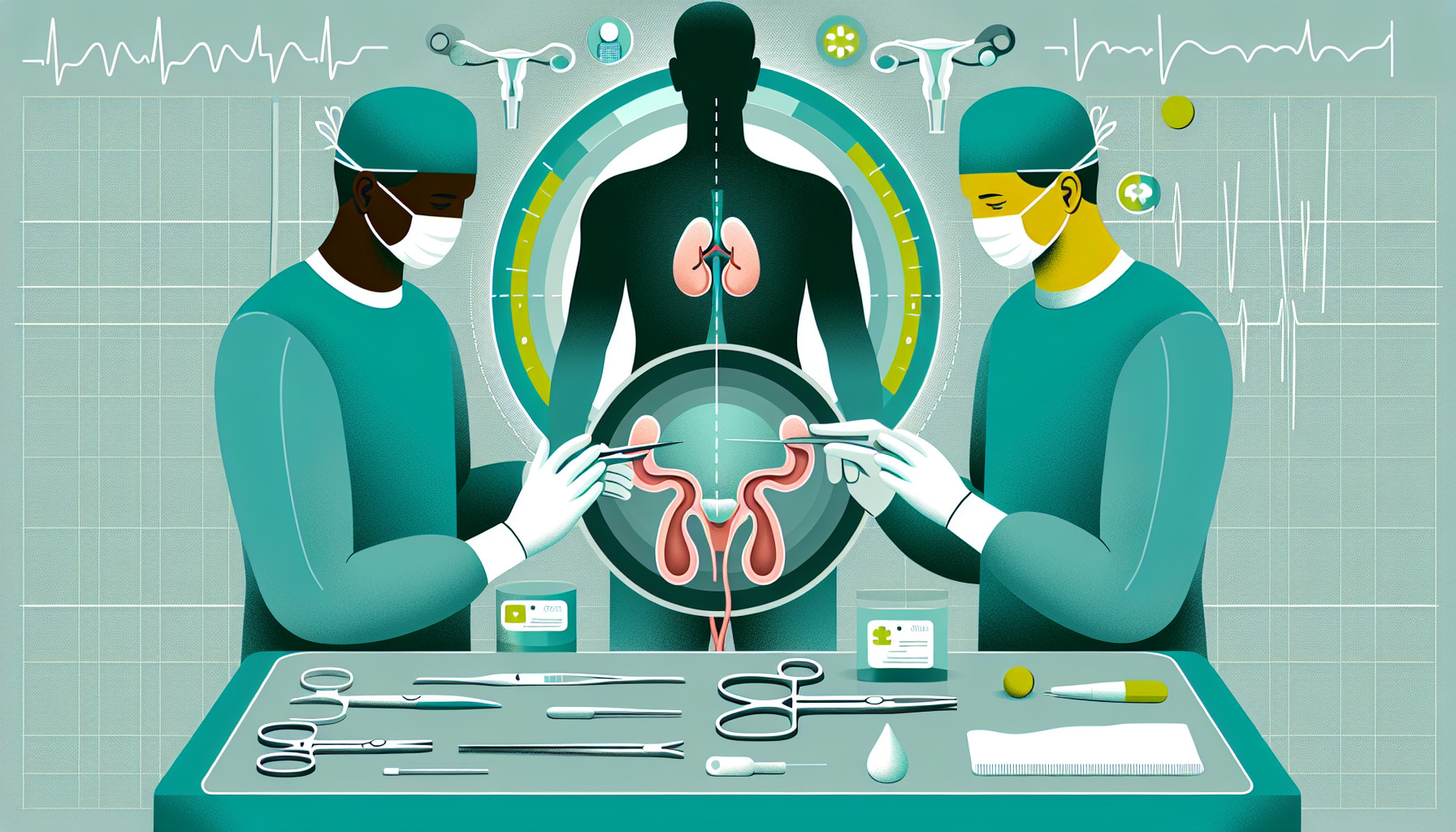Our Summary
This paper seeks to understand the effectiveness of different nursing strategies in dealing with the symptoms experienced by patients who have undergone radical cystectomy (surgical removal of the bladder) and how they can get back to their normal lives. The researchers carried out a review of previous studies, looking for information on common symptoms after this surgery.
The study finds that there is not enough evidence on how effective pre-surgery education and counseling are, or on the best ways to prepare patients for lifestyle changes before surgery. It also finds that most nursing strategies used to manage symptoms after the surgery are based on practice rather than research.
The researchers recommend that more emphasis be placed on implementing the ERAS (Enhanced Recovery After Surgery) protocol, a patient-centered strategy that aims to minimize hospital stay and complications. They also suggest using validated tools to identify and manage symptoms, and setting clear treatment goals. They encourage further research into symptom clusters (groups of symptoms that occur together) to determine whether understanding these could lead to better patient care.
In simpler terms, this paper is about finding the best ways to help patients recover and manage symptoms after bladder removal surgery, and it suggests more research is needed in this area.
FAQs
- What is the main focus of this study on cystectomy?
- What are the findings of the research regarding pre-surgery education, counseling, and preparation for patients undergoing cystectomy?
- What recommendations have the researchers made for improving patient care and recovery after cystectomy?
Doctor’s Tip
A helpful tip a doctor might tell a patient about cystectomy is to follow a healthy diet and stay hydrated to promote healing and prevent complications. They may also recommend regular exercise to improve overall health and aid in recovery. Additionally, it is important to communicate any concerns or changes in symptoms to your healthcare team for proper management.
Suitable For
Patients who are typically recommended cystectomy are those with bladder cancer that has not responded to other treatments or has a high risk of recurrence. Other conditions that may necessitate cystectomy include advanced bladder cancer, muscle-invasive bladder cancer, or non-muscle invasive bladder cancer that has not responded to other treatments. Additionally, patients with certain urinary tract conditions, such as interstitial cystitis or neurogenic bladder, may also be recommended for cystectomy.
Timeline
Before cystectomy:
- Patient is diagnosed with bladder cancer or other bladder conditions that require surgical removal
- Patient undergoes pre-surgery tests and consultations to determine the best course of treatment
- Patient receives education and counseling on what to expect before and after surgery
- Patient may need to make lifestyle changes in preparation for the surgery
After cystectomy:
- Patient undergoes the surgical removal of the bladder
- Patient experiences symptoms such as pain, fatigue, urinary incontinence, bowel changes, and emotional distress
- Patient receives post-operative care and management of symptoms from healthcare providers
- Patient undergoes rehabilitation and physical therapy to regain strength and function
- Patient may need to adjust to life with a urostomy or other urinary diversion
- Patient may experience challenges in adjusting to the physical and emotional changes after surgery
Overall, the timeline for a patient before and after cystectomy involves a process of diagnosis, preparation, surgery, symptom management, rehabilitation, and adjustment to a new way of life. It is important for healthcare providers to provide holistic care and support to help patients navigate this journey effectively.
What to Ask Your Doctor
Some questions a patient should ask their doctor about cystectomy include:
- What are the potential side effects and complications of a cystectomy?
- How long is the recovery period after a cystectomy?
- What lifestyle changes will I need to make after the surgery?
- Will I need any additional treatments or therapies after the cystectomy?
- What support services are available to help me manage symptoms and adjust to life after the surgery?
- How can I best prepare myself physically and emotionally for the surgery?
- What is the success rate of cystectomy in treating my condition?
- Are there any alternative treatment options to consider?
- What can I expect in terms of pain management after the surgery?
- How often will I need follow-up appointments and monitoring after the cystectomy?
Reference
Authors: Lauridsen SV. Journal: Semin Oncol Nurs. 2021 Feb;37(1):151110. doi: 10.1016/j.soncn.2020.151110. Epub 2021 Jan 3. PMID: 33408048
